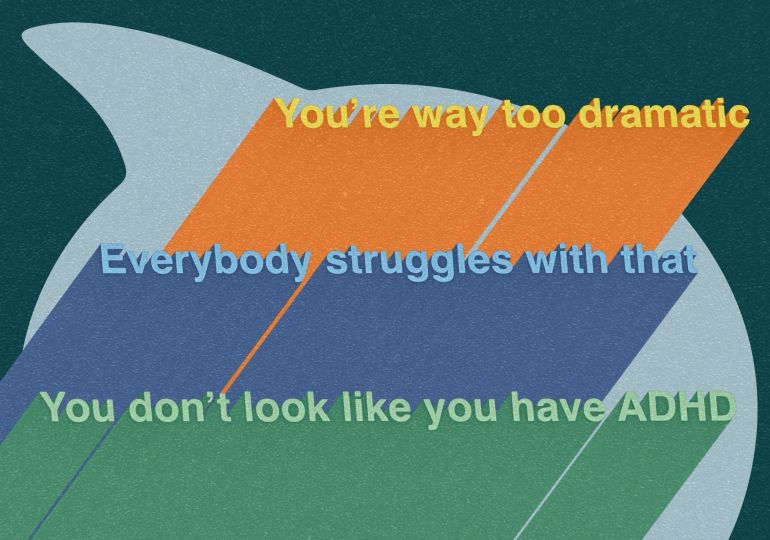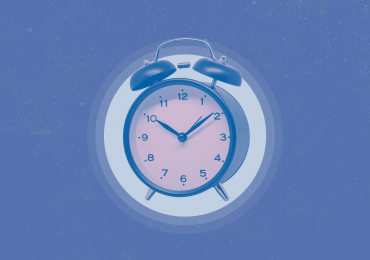We’ll save you the trouble of wondering: Yes, people with attention-deficit/hyperactivity disorder (ADHD) have considered using a planner, setting an alarm clock, and creating reminders on their phone. No, those suggestions aren’t helpful.
In fact, these are among the worst things you can say to someone with ADHD, which is characterized by symptoms like having a hard time paying attention, struggling with task initiation, and feeling restless or engaging in impulsive behavior. “It’s like, ‘Wow, what a genius idea,’” says Bailey Pilant, a licensed mental health counselor in New York who specializes in ADHD (and has the condition herself). Yet people dispense these well-intentioned but unsolicited tips again and again—including telling Pilant she should try writing things down. “I can write it down, and I’m still not going to remember because you can bet I’m going to lose that paper,” she says. “I’m not going to remember I wrote it down, I’m not going to remember where I wrote it down, I’m not going to be able to find it, and then just like that, it’s out of my head.”
[time-brightcove not-tgx=”true”]
There are other infuriating remarks, too. Here are some of them—plus what to say instead.
“Are you sure? You don’t look like you have ADHD.”
When Pilant went to college, her peers looked at her strangely when she revealed she had a prescription for Adderall to help her manage her ADHD. They all said the same thing, fueled by a misunderstanding of the many ways the condition can manifest: “You don’t look like you have ADHD.” Some questioned whether she was sure she actually had it.
“It was so dismissive, and I was very insecure about it at the time,” she recalls. “I quickly learned not to talk about it, and then I shamed myself out of taking my medication because of the negativity and stigma around even disclosing I had ADHD.” It took years for her to resume the medication—and when she finally did, she was amazed at how much it helped her cope with daily challenges.
“You have so much potential if you just try harder.”
When you grow up with ADHD, Pilant says, people constantly tell you that you just need to try harder, be more disciplined, and quit with the laziness already. “Trust me,” she used to think, “We’re trying really hard to be ‘normal.’”
Read More: Stop Saying These 5 Things to People With Social Anxiety
“These comments are so disheartening,” she says. “I can feel my heart breaking remembering all the times I’ve been told that I have so much potential, if I just applied myself more. It hurts because that’s not what’s going on.” She wishes more people understood that ADHD leads to trouble with executive functioning, which can feel like being at a traffic stop without any lights or signs or controllers waving cars through. “Our brain is like a free-for-all where we’re constantly navigating, ‘What am I supposed to do? How do I do that? How do I figure this out?’” she says. “It takes a lot of brainpower and work to be internally battling ourselves all day, every day to get through life tests.”
“You’re way too dramatic.”
People with ADHD often experience intense, overwhelming emotions, triggered by even the slightest setbacks and frustrations. That can include being especially sensitive to rejection. “They tend to feel their emotions in really vivid colors—they feel things more deeply than other people,” says Billy Roberts, a therapist in Columbus, Ohio, who specializes in the condition. That’s not necessarily a bad thing, he says; it can contribute to creativity and artistry, for example.
Yet friends and family members often coax those with ADHD to calm down, telling them they’re being too dramatic or sensitive. That’s a mistake. “It increases their shame and self-criticism, and can decrease their self-esteem and self-worth,” Roberts says. “It might actually shatter their confidence and make them less assertive. It’s not just one comment—it’s the accumulation of feeling so misunderstood and not heard.”
“Everybody struggles with that.”
One of the worst things you can say to someone with ADHD is that “everybody struggles with that” when referencing one of their symptoms, like always running late. Most people do, in fact, experience ADHD symptoms from time to time, says Russ Jones, an ADHD productivity coach and host of the ADHD Big Brother podcast. Forgetfulness and tardiness, for example, are both common. Yet that doesn’t mean you also have ADHD, or that the other person doesn’t have a “real” condition. “The degree to which we’re debilitated by those symptoms is what makes the difference,” he says.
Take losing your car keys, which happens to most people occasionally. Annoying? Sure. “But for an adult with ADHD, those lost keys might make them late to work, and if they’re late for work one more time, they’re going to lose their job,” Jones says. “And if they lose one more job, their spouse will leave them. That’s the ADHD difference.”
“Can you stop fidgeting for one minute?”
It’s common for people with ADHD to feel like they’re always being barked at to sit still. Keep in mind that for many, occupying their fingers—like with small fidget toys—actually improves focus, because it helps regulate the nervous system, allowing them to tune out distractions.
Read More: The Worst Thing to Say to Someone Who’s Depressed
Yet people often confuse Jones’s fidgeting with a lack of interest. He wants them to know: “That’s me doing what I have to do to stay focused,” he says. “I have to occupy some aspect of my brain—it’s not me being like, ‘How do I get out of this? I’m a friendly guy and I care about you and I want to listen to you, but if I sit still, my brain will go everywhere all at once. Give me a fidget toy, and I can lock in.”
What to say instead
There are lots of ways to support loved ones with ADHD. Instead of a flippant “everyone has ADHD these days,” Pilant suggests saying: “I can see how much effort it takes you to manage this. It sounds really hard.” You could also show interest by asking: “What are the biggest challenges you deal with every day?”
“Get curious with the person,” she advises. “Instead of saying things like ‘try harder,’ ask what strategies or support help them the most.” And instead of telling them (for the umpteenth time they’ve heard it) that they ought to try using a planner, Pilant recommends asking: “Can I share something that’s worked for me and see if it might be a fit for you?” Or: “What was your experience like when you used this tool before? Can we work together to find a system that would better support you and your needs?”
Read More: What a Hyperfixation Really Is
If you’re in a close relationship with someone with ADHD, make it clear that you don’t want to fix or change them—but rather, you enjoy helping make their life easier. You might ask your girlfriend, for example: “Hey, Jules, did you remember to grab XYZ?” If she starts berating herself for forgetting, jump in: “It’s OK! I had a feeling you might forget, so I grabbed it for you.”
“The best thing you can do is learn to support them and not shame them for their ‘deficits,’” Pilant says. “Then also have that loving, radical acceptance and understanding that even with support and tools in place, they may not always be able to do it—and that’s where we come in, with gentle reminders or just taking over and fulfilling that deficit for them.”
Wondering what to say in a tricky social situation? Email timetotalk@time.com
Leave a comment


